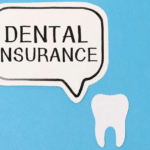As a business owner, you know that protecting your business from various risks is a critical component of your overall strategy. Whether you run a small business or are the owner of a larger enterprise, there are many potential threats that could disrupt your operations. One key aspect of protecting your business and maintaining its long-term stability is understanding professional liability insurance and its importance.
Professional liability insurance, also known as errors and omissions (E&O) insurance, is a policy designed to protect businesses and professionals from claims of negligence, mistakes, or failure to deliver services as promised. This insurance is especially important for businesses and professionals that provide services or advice to clients.
In this article, we will dive into what professional liability insurance is, who needs it, how it works, and why it is essential for your business. We’ll also answer the most common questions regarding professional liability insurance and provide a summary of the key takeaways.
Key Takeaways
- Professional liability insurance protects businesses and professionals from claims of negligence, errors, or omissions related to their services.
- It covers legal defense costs, settlements, judgments, and more.
- Professionals in fields such as law, healthcare, consulting, accounting, and engineering benefit from this type of insurance.
- Professional liability insurance provides peace of mind, financial protection, and ensures business continuity in the event of a claim.
- The cost of professional liability insurance varies depending on the business, industry, and coverage needed, but it’s an essential investment for protecting your business from lawsuits.
What is Professional Liability Insurance?

Professional liability insurance is a type of coverage that protects professionals against claims of negligence, errors, or omissions in the services they provide. It can cover the legal costs, settlements, and judgments resulting from claims of professional mistakes, misjudgments, or failure to deliver the services as promised.
Unlike general liability insurance, which covers physical injuries and property damage, professional liability insurance specifically addresses issues related to the quality and delivery of professional services. It’s designed to protect businesses and individuals who offer specialized advice or services, including lawyers, doctors, architects, consultants, accountants, and more.
Professional liability insurance helps protect professionals from the financial risks associated with lawsuits filed by clients or third parties who allege that their business was negatively affected by the actions or advice provided by the professional. This type of insurance can cover the following:
- Legal defense costs: Whether the claim is valid or not, professional liability insurance can cover legal defense costs, including attorney fees and court costs.
- Settlements or judgment costs: If the business or professional is found liable, professional liability insurance can cover the settlement or judgment amount.
- Claims related to negligence or omissions: If a mistake or omission is made during the professional service or advice, this insurance can help cover the resulting claims.
Why is Professional Liability Insurance Important?
Professional liability insurance is vital for many reasons, and here are some key benefits:
1. Protection from Lawsuits
Every professional, regardless of industry, faces the risk of being sued for providing faulty or incorrect advice, making mistakes, or failing to fulfill contractual obligations. Even the most experienced and well-established professionals can face claims from clients who feel they’ve been harmed by their work. Without professional liability insurance, the costs of defending against these claims can be devastating, potentially bankrupting a small business.
2. Peace of Mind
Knowing that your business is covered by professional liability insurance allows you to focus on your work without the constant worry of a potential lawsuit. It helps create a safety net for professionals, giving them peace of mind that their financial stability is protected.
3. Financial Protection
Legal fees and settlement costs can add up quickly when defending against claims. Professional liability insurance helps mitigate the financial strain by covering these costs. Even if the claim is baseless, you can incur significant legal fees to defend yourself. Professional liability insurance helps cover these unexpected expenses.
4. Required by Clients
In some industries, having professional liability insurance is a requirement to secure contracts or clients. Many clients, particularly large corporations, require that their service providers have this type of insurance to ensure that they are protected from potential errors or omissions. This can be a key factor in securing contracts and maintaining good client relationships.
5. Covers a Range of Risks
Professional liability insurance covers a broad range of potential issues, including errors in judgment, professional negligence, breach of contract, misrepresentation, and failure to deliver services or results. This coverage helps professionals avoid having to shoulder the financial burden of these risks on their own.
6. Business Continuity
When a claim is made against your business, the potential financial consequences can lead to significant disruption. Professional liability insurance helps ensure that your business can continue operations while dealing with legal matters, without being overwhelmed by the costs associated with defending or settling claims.
Who Needs Professional Liability Insurance?
While any business can benefit from professional liability insurance, certain industries are more likely to face claims related to negligence, mistakes, or failure to perform their duties. These industries include:
- Healthcare Providers
Doctors, nurses, therapists, and other healthcare professionals can be sued for malpractice or negligence. Professional liability insurance (malpractice insurance) is essential in protecting against these claims. - Legal Professionals
Lawyers and legal consultants can face claims of professional negligence, errors, or omissions in their work. Professional liability insurance for legal professionals protects them against lawsuits alleging subpar legal representation or advice. - Accountants and Financial Advisors
Financial professionals can face lawsuits due to errors in financial planning, tax filing, or advice that results in financial loss for clients. Professional liability insurance helps protect accountants, tax advisors, and financial consultants from such claims. - Consultants and Contractors
Consultants in fields like management, IT, and business operations often face claims related to mistakes in the services they provide. Contractors providing specialized services, such as construction or engineering, may also face negligence claims if the work is done incorrectly or doesn’t meet contract specifications. - Real Estate Professionals
Real estate agents and brokers can be sued for failing to disclose important information, making false statements, or other errors related to transactions. Professional liability insurance covers such claims. - Architects and Engineers
Professionals in architecture and engineering are often held responsible for the accuracy and safety of their designs. If their work leads to structural failures or other issues, they may be sued for negligence, making professional liability insurance crucial in these fields.
Differences Between Professional Liability and General Liability Insurance

Comparison of Coverage
While both professional liability and general liability insurance offer protection to businesses, they cover different risks. Professional liability insurance covers claims related to professional mistakes, errors, or omissions in the services or advice provided by a business. On the other hand, general liability insurance covers physical injuries and property damage resulting from the business’s operations.
When to Choose One Over the Other
- General liability insurance is generally a must for any business, while professional liability insurance is especially critical for those offering professional services or advice.
- Understanding the scope of both insurances can help professionals decide whether they need both coverages, which is common in many industries, such as construction or healthcare.
How to Calculate the Cost of Professional Liability Insurance
Factors Affecting Premiums
The cost of professional liability insurance varies based on several factors:
- Industry: High-risk professions such as healthcare or law have higher premiums compared to lower-risk industries like technology or consulting.
- Business Size: Larger businesses or those with higher revenue typically pay higher premiums.
- Claims History: If your business or profession has a history of claims or lawsuits, insurers may charge higher premiums.
- Coverage Limits: The higher the coverage limit you choose, the more you’ll pay in premiums.
Cost-Effective Tips for Businesses
- Consider increasing your deductibles to lower premiums.
- Shop around and compare rates from different insurers to get the best deal.
- Invest in risk management strategies to minimize claims, which can ultimately lower your premiums.
Claims Process for Professional Liability Insurance
Steps in Filing a Claim
- Report the Claim: Notify your insurance company as soon as you’re aware of a claim or potential lawsuit.
- Investigation: The insurer will investigate the validity of the claim by reviewing the facts and assessing any evidence.
- Defense: Your insurer will provide legal defense for you, even if the claim is baseless.
- Settlement: If the insurer decides to settle, they will negotiate on your behalf, and the insurer may cover any settlement or judgment fees within the policy limits.
How Long Does the Claims Process Take?
The claims process can take from several months to a few years, depending on the complexity of the case. The timeline depends on various factors, including the nature of the claim, legal proceedings, and the cooperation of all parties involved.
Common Exclusions in Professional Liability Insurance Policies
Understanding Policy Exclusions
Most professional liability insurance policies come with specific exclusions that detail what is not covered by the policy. Some common exclusions include:
- Intentional Acts: Claims arising from intentional misconduct or fraud are typically not covered.
- Employee Injuries: Injuries to employees are typically covered under workers’ compensation insurance, not professional liability insurance.
- Property Damage: Damages to property owned by the business or employee are excluded from professional liability policies, as these are generally covered under general liability or property insurance.
How to Address Exclusions
Professionals may need additional coverage or riders for specific exclusions, such as:
- Cyber Liability Insurance: To cover data breaches or cyber attacks.
- Employment Practices Liability Insurance: To cover claims related to wrongful termination, discrimination, or harassment.
Tail Coverage in Professional Liability Insurance
What is Tail Coverage?
Tail coverage is an extension of a claims-made professional liability policy, providing protection for claims made after the policy expires but that result from incidents that occurred while the policy was active. This is essential for businesses that plan to discontinue their coverage or retire from a profession.
When to Purchase Tail Coverage
- When Changing Insurance Providers: If you switch providers but need continued protection for incidents that occurred under your old policy.
- When Retiring: If you’re retiring or leaving a profession, tail coverage will protect you from claims made after you cease your professional activities.
How Professional Liability Insurance Protects Your Reputation
Defending Against Claims
Professional liability insurance not only protects your business financially but also helps protect your professional reputation. When clients bring lawsuits based on errors, omissions, or mistakes in your work, having an insurance provider handle the legal defense can prevent damage to your reputation.
Settling Claims Quietly
Insurance companies may also offer settlement options that help resolve disputes quietly, ensuring that your business doesn’t lose credibility or face negative publicity.
Key Features of Professional Liability Insurance Policies
Policy Features to Look for
When choosing a professional liability insurance policy, make sure it includes the following features:
- Coverage for Legal Defense: Ensure the policy covers legal costs even if the claim is groundless.
- Claims-Made vs. Occurrence Coverage: Understand the policy type, as claims-made policies have limitations based on when the claim is filed.
- Sub-Limits: Some policies may have sub-limits for specific types of coverage, such as claims involving intellectual property, advertising injuries, or cyber liability.
Importance of Customization
Since professional liability risks vary by industry and individual circumstances, it’s essential to customize the policy to meet your specific needs. Work with an insurance agent to tailor your coverage and ensure you are adequately protected.
Professional Liability Insurance for Startups

Why Startups Need Coverage
Startups often face a high degree of risk when offering new products or services. Professional liability insurance protects startups from:
- Customer complaints: If customers feel they were misled or received subpar services.
- Lawsuits: Startups are vulnerable to legal actions, especially if they operate in high-stakes sectors like tech or consulting.
How to Obtain Insurance as a Startup
- Evaluate Risks: Assess the specific risks your startup may face and choose appropriate coverage limits.
- Consider Group Insurance Plans: Startups may be eligible for group insurance coverage, especially if they partner with industry associations that offer discounted rates.
The Role of Professional Liability Insurance in the Gig Economy
Rising Need for Coverage in Freelance and Gig Work
In the gig economy, freelancers and independent contractors are increasingly at risk of lawsuits related to their work. Professional liability insurance is critical for these workers, who may not have the same legal protections as employees. It offers protection against:
- Client dissatisfaction
- Breach of contract claims
- Mistakes or negligence in services rendered
How Freelancers Can Benefit
Freelancers, consultants, and gig workers should consider purchasing professional liability insurance to ensure they can protect themselves from costly legal claims while working independently.
How to Integrate Professional Liability Insurance with Other Business Insurance
Comprehensive Coverage Plan
Professional liability insurance is just one piece of the puzzle when it comes to business insurance. A comprehensive business insurance plan often includes:
- General Liability Insurance: For protection against bodily injury, property damage, and advertising injury.
- Workers’ Compensation Insurance: For coverage in case of employee injuries.
- Property Insurance: For damage or loss of business property.
Coordination Between Policies
It’s important to ensure that all your business insurance policies work together to provide seamless coverage. For example, general liability insurance can cover claims related to physical injuries, while professional liability insurance covers claims related to the services you provide.
How Does Professional Liability Insurance Work?
The way professional liability insurance works can vary depending on the policy and the insurer, but the basic process involves several steps:
- Coverage Limits:
Professional liability policies usually include coverage limits, which specify the maximum amount the insurer will pay for claims during a policy period. The coverage limit can be customized based on the needs of the business or professional. - Claims-Made vs. Occurrence Policies:
Professional liability insurance policies can be either “claims-made” or “occurrence” policies. Claims-made policies provide coverage only for claims made during the active policy period, while occurrence policies provide coverage for incidents that occur during the policy period, even if the claim is made later. - Deductibles and Premiums:
The premiums for professional liability insurance vary depending on the nature of the business, the industry, and the amount of coverage needed. Businesses usually need to pay a deductible before the insurance company covers any costs related to the claim. - Filing a Claim:
If a claim is made against you, your first step is to notify your insurer. The insurance company will then investigate the claim, assess its validity, and provide a defense if necessary. Depending on the situation, the insurer may settle the claim, or they may support you in court. - Defending Claims:
Even if a claim is without merit, professional liability insurance covers the costs of defending the lawsuit, including attorney fees, court costs, and expert witness fees.
Read More : What is Workers’ Compensation Insurance and Why Does Your Business Need It?
Conclusion
Professional liability insurance is a vital tool for protecting your business and reputation. It offers financial protection against claims related to negligence, errors, omissions, and failure to deliver services as promised. Whether you are an attorney, healthcare provider, consultant, or any other professional offering advice or services, having the right coverage in place is crucial to ensuring that your business can weather any legal challenges.
FAQs
1. What does professional liability insurance cover?
Professional liability insurance typically covers errors, omissions, or mistakes made during the provision of professional services, as well as negligence, breach of contract, and failure to perform services as promised.
2. Is professional liability insurance mandatory?
In some industries, such as healthcare and law, professional liability insurance is required by law. Even if it’s not mandatory, many businesses choose to have this insurance as it provides essential protection against the risk of lawsuits.
3. How much does professional liability insurance cost?
The cost of professional liability insurance varies based on factors such as the industry, size of the business, level of coverage, and claims history. On average, small businesses can expect to pay anywhere from $500 to $2,500 per year for a policy.
4. Can professional liability insurance be purchased with general liability insurance?
Some insurers offer package policies that combine general liability insurance and professional liability insurance. However, they are distinct types of coverage, and businesses should assess their unique needs to determine if they need both types.
5. What is the difference between professional liability and general liability insurance?
General liability insurance covers third-party injuries, property damage, and other accidents. Professional liability insurance, on the other hand, covers claims related to errors, omissions, and negligence in the services or advice provided.
6. Can I get professional liability insurance if I’m a freelancer?
Yes, freelancers and independent contractors can and should obtain professional liability insurance to protect themselves against potential claims of negligence, mistakes, or omissions in their work.
7. Does professional liability insurance cover criminal activity?
No, professional liability insurance typically does not cover criminal activities, fraud, or intentional wrongdoing. It’s designed to cover mistakes or oversights that occur in the course of professional services.





